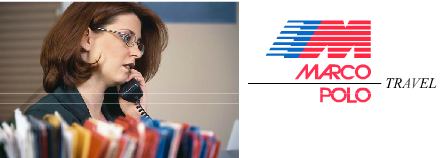
|

|
|

|
| TRAVEL TIPS
|
||
Travel to
India Carry your passport with you at all times. Visas can be obtained from the Indian Embassy or High Commission in your home country. Ask for a multiple-entry visa, in case you want to make a quick trip to a neighboring country. Visas are usually issued without much difficulty if you meet the application requirements. These are: sufficient funds for the duration of your stay, a valid passport, ID photos, and a company letter for business travelers. The length of visas varies, allowing visitors to stay in India for anything from 15 days to six months. In addition to a visa, you may need a special permit to visit certain protected or restricted parts of the country, such as areas in Sikkim, Ladakh, the Andaman Islands, Lakshadweep and some northeastern hill states. Permits are available at foreign registration offices, immigration offices, and Indian Embassies, Consulates and High Commissions. For Sikkim you will need a trekking permit. If you have a visa for Bhutan, you'll also need a transit permit to cross the border. This permit is available from the Ministry of External Affairs. Consult the nearest high commission, embassy or consulate in your own country for further details. Public Holidays
Cyclones are not unusual along the east coast. The risk of cyclones is greatest between the end of October and early December, but they have been known to occur as early as June. Communications As a general rule, the postal service in India is excellent. Mail
to destinations in Europe, North America, Australia or New Zealand
takes about 10 to 14 days. A Speed Post service is also available,
which usually takes just a few days Mailing a parcel can be a hassle. Either have it packed by a postal packing service, or ask a tailor to make a linen bag for the parcel and ensure that the seams are sealed with wax. There's a much cheaper rate for posting books and magazines, and these items do not have to be wrapped in cloth. The telephone system is usually quite good, but the quality of the telephone lines is dependent on the weather. Local and international calls can be made from 'STD/ISD' (standard trunk dialing/international subscriber dialing) phone booths. These can be found in shops or other businesses. They are quick and easy to use, and are sometimes open all day. Your bill must be paid on completion of your call/s. Many of these booths also have fax machines for public use. Another service available is the 'Home Country Direct' service, which gives you access to the international operator in your own country. This enables you to make reverse charge calls, as well as credit card calls. Telephone calls made from hotels are often quite expensive. Electricity
Airlines and major hotels are usually helpful, and taxi and rickshaw drivers are usually also eager to assist. Budget Travel A good medical insurance policy is essential when visiting India, because medical treatment can be very expensive. Be aware that health care facilities in India are limited. However, there are state-operated facilities in towns and cities, and urban areas also have private consultants and specialists. Most doctors in India speak English. Ask your hotel to help you get a doctor in a medical emergency. Some of the bigger hotels have their own doctor on call. In case of minor medical problems, a pharmacy will usually be able to help you. Pharmacies are easy to locate as almost every market has one. Most medicines can be obtained without prescription, but make sure you check the sell-by date. No vaccinations are legally required. However, it is recommended to have meningitis, typhoid and hepatitis A injections before visiting India. Make sure that you are up to date with tetanus boosters as well. Take an ample supply of prescribed medication, as well as a copy of your prescription. Keep the packaging of your medication showing the generic name. This will make it easier to fill prescriptions, especially if the specific brand name is not available. Take an extra pair of glasses and a copy of your prescription as well, as lost or broken glasses can be difficult to replace. If you wear contact lenses, consider wearing glasses for the duration of your stay in India, because the dust and heat can become quite irritating for contact lens wearers. A basic health rule is not to drink the water! Not even the ice. Unless you're absolutely sure, always assume that the water is untreated. Use water from containers with a proper seal, or purify it by boiling or treating it chemically. The water in Calcutta is extremely polluted. Take special care, because gastric disease is endemic here. If mosquitoes do bite you, try not to scratch the bite as infection and tropical ulcers can easily set in. Also try to stay away from bees, wasps, leeches and snakes! Aids is a problem in India, as in most places, so take the necessary precautions. You may want to carry your own syringes and transfusion kit. Safety Generally speaking, India is a safe country to visit. Crime levels are well below those of Western countries and violent crime is unusual. However, tourists are always obvious targets for thieves. Bihar is notorious for its absence of law and order. Kidnappings, banditry, murder and rape are common occurrences. Be careful when traveling here, especially at night. It's advisable to make a copy of your passport, visas, airplane ticket and other important documents to make it easier to get replacements if they are lost or stolen. Also keep a record of the serial numbers of your travelers cheques, and a copy of your travel insurance policy. Make sure that your travel insurance policy covers you against theft. If you do get robbed, report it to the police. You will need a police report if you want to file an insurance claim. Be alert to credit card fraud: insist that restaurants and shops process your credit card payment in front of you. Sometimes credit cards are used to make duplicate forms, and the client is then billed for fictitious transactions. Flooding is India's major natural hazard. By early July, the monsoon (seasonal wind) rages throughout the whole country, bringing moisture with it. Usually it comes from the southwest, but the southeastern coast gets the short and very wet northeastern monsoon. This monsoon brings rain from mid-October to the end of December. The monsoon can be very destructive, resulting in floods, homelessness and even death, as well as causing poor road and rail conditions.
1 pint of alcohol
Duty Free Customs Allowance To avoid misuse of the above allowance, passengers are advised
not to bring these items in its original package. The above information
has been taken from baggage rules as notified by the Government
of India- dated 28th October 1999. Overseas Travel from India What to take along with you? Don't forget to take an International Driving License, which can be obtained through the Automobile Association. Otherwise keep your Driving License with photo for identification even if you are not planning to drive. Remember to keep an 'in case of emergency card' that should contain your blood type, allergies and special medical conditions, along with the names and numbers of your doctors. Do not forget to keep an extra pair of eyeglasses and a list of your medicines in your carry-on luggage.
A copy of the itinerary of your trip and important phone numbers. A copy of your Travellers' Cheques' serial numbers and other such details.
Check that your passport is not approaching expiry date. Sign each Travellers' Cheque on the top left corner to protect yourself in case of loss or theft. Remember to put your name, address, and telephone number inside each piece of checked and carry-on luggage. Don't miss locking your luggage. If possible, use your business address on your luggage. Its advisable to register valuable items such as cameras, laptop computers, and jewellery with customs, before departing. This will save you the import fees when you return. Plan to travel in comfortable and sober clothing to avoid attracting any undue attention.
Watch out your carry-on items closely when you go through the security clearance. Try to avoid currency exchange windows and prefer exchanging only a small amount. Make sure that your whole luggage is placed inside the taxi trunk and the lid is well covered. Unless the individual is known to you, do not accept an offer to share a taxi.
Avoid leaving your valuables in the room while you are away. Don't leave them even in locked luggage or guest room safes. While leaving the room, switch on television or radio set to give the impression that the room is occupied. Never use display signs like requesting for room cleaning services. It indicates that room is unoccupied hence exposed to any kind of theft.
Men should carry their wallets in their front pockets and women should carry their purses close to their bodies with the latch facing in. Carry small amount of money separate from the rest of your money so that you don't have to show your cash every time you make a purchase. In areas where people naturally stand close to you like airports, trains, bus elevators, escalators and open-air market, remain extra alert. Travel with a detailed map of the city and prominently mark the hotel, embassy and police station. You should be familiar with the directions of the city before leaving the hotel. Carry a piece of hotel stationary with you. It comes in handy when communicating with local taxi drivers.
Immediately report the theft of credit or charge cards. In the event of your passport and airline tickets being lost or stolen, contact the embassy and the appropriate airline. The extra copies can be used to expedite the replacement. |
||
